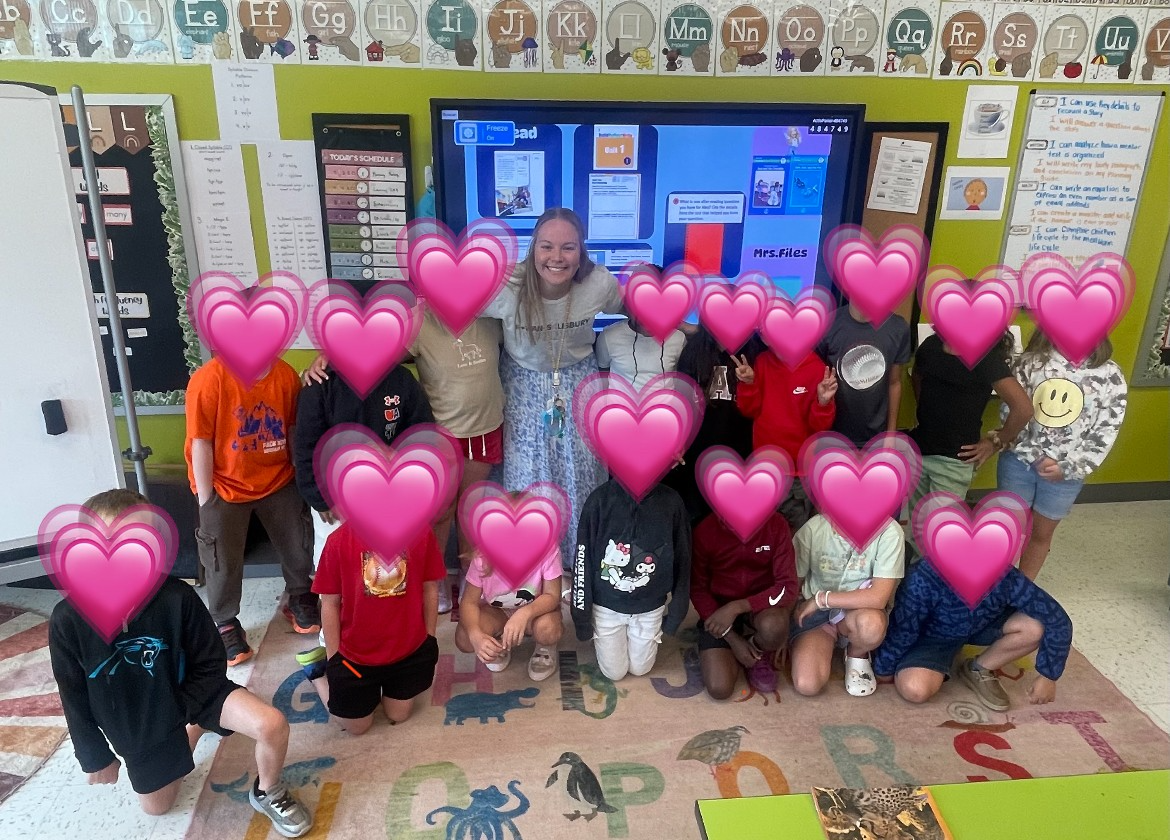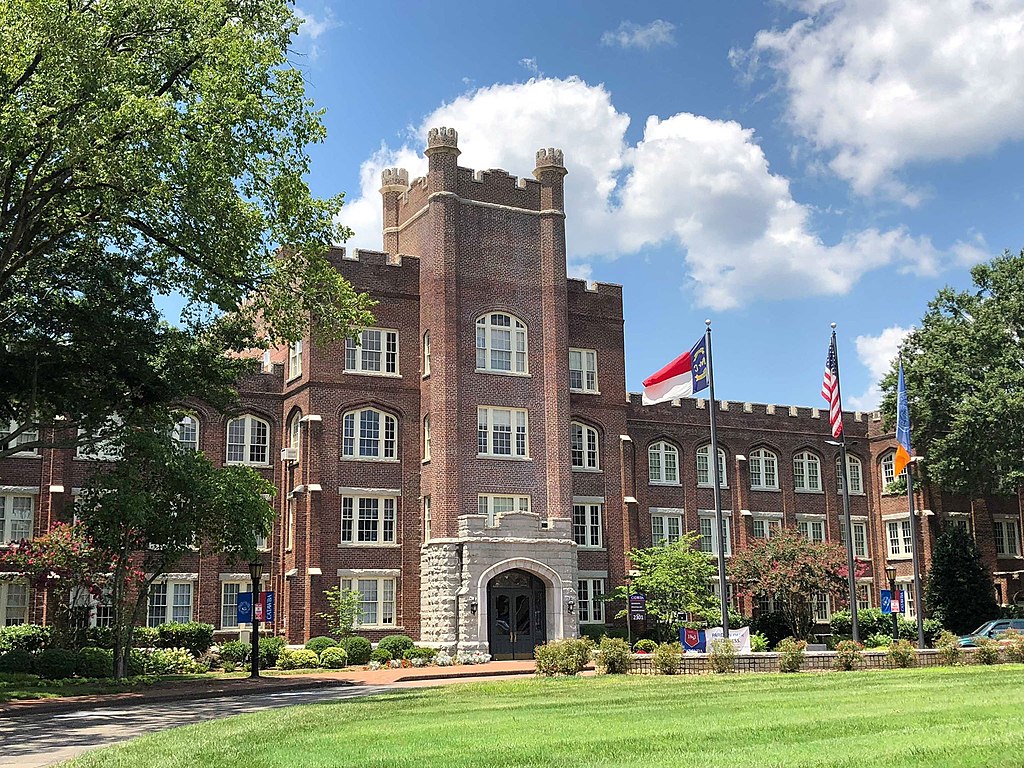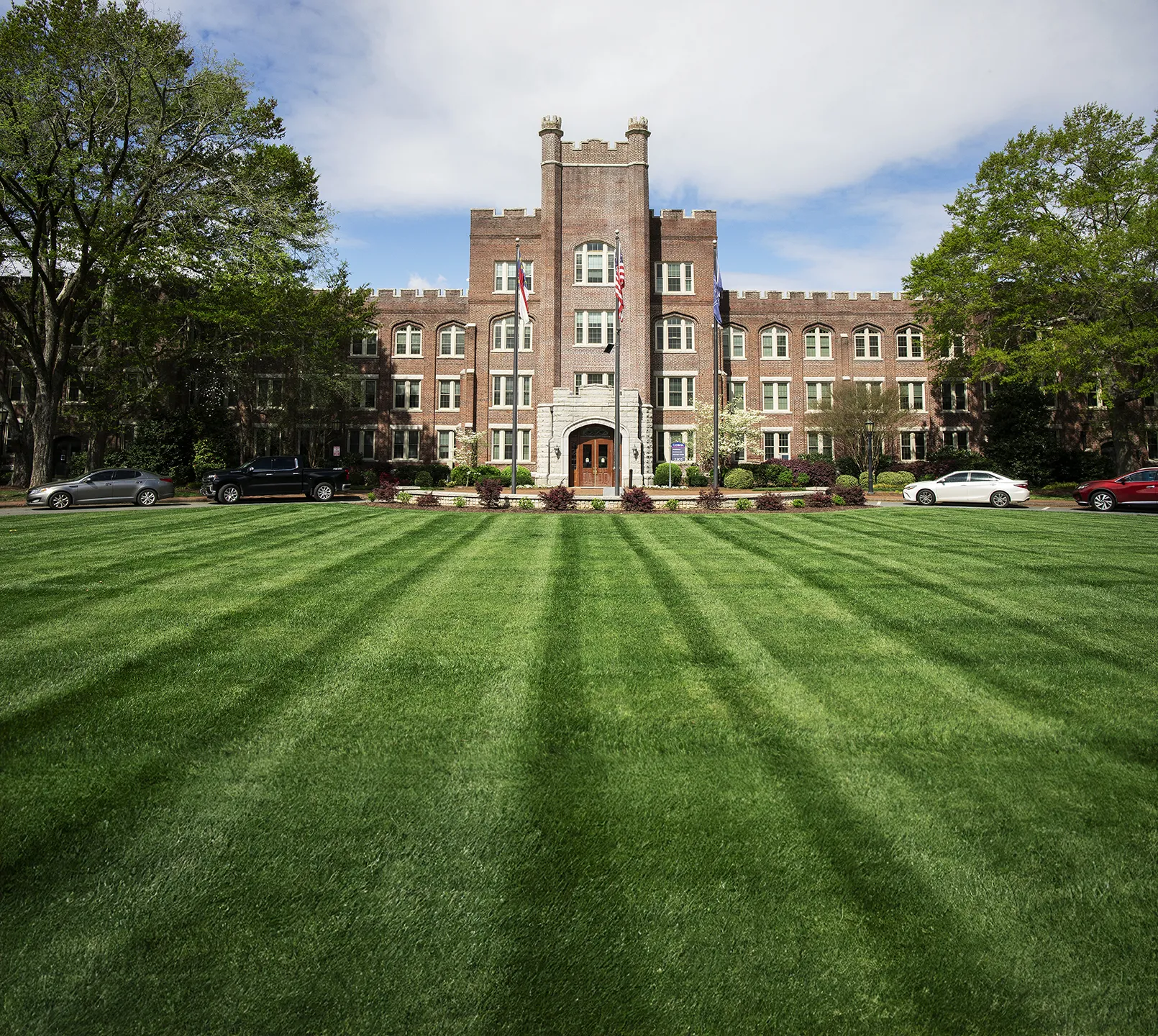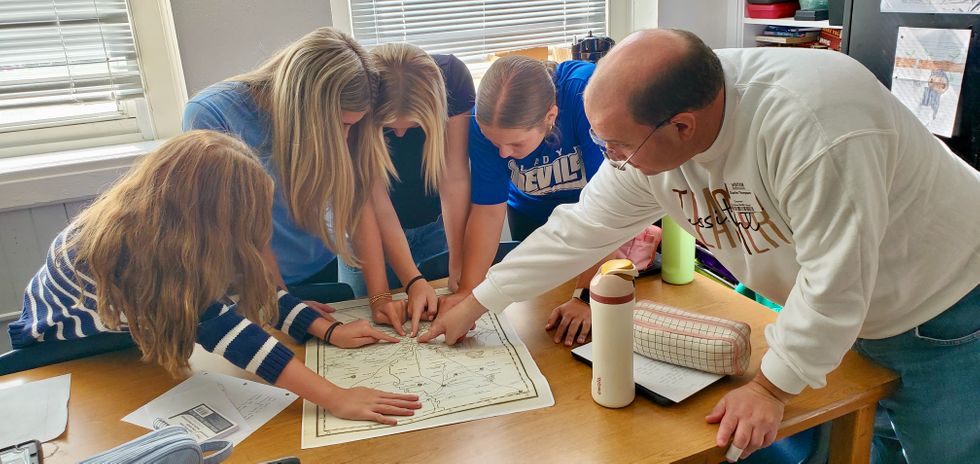
Middle School Education (6-9)
Support & Educate Children as They Grow Their Personalities & Explore Their Interests as Middle Schoolers
Working with adolescents as an educator is not without its challenges, and two-fold, its rewards. Continue to shape the intellectual and explorative minds of young people, providing a safe, supportive, and structured environment where they gain more independence and freedom to make important choices.
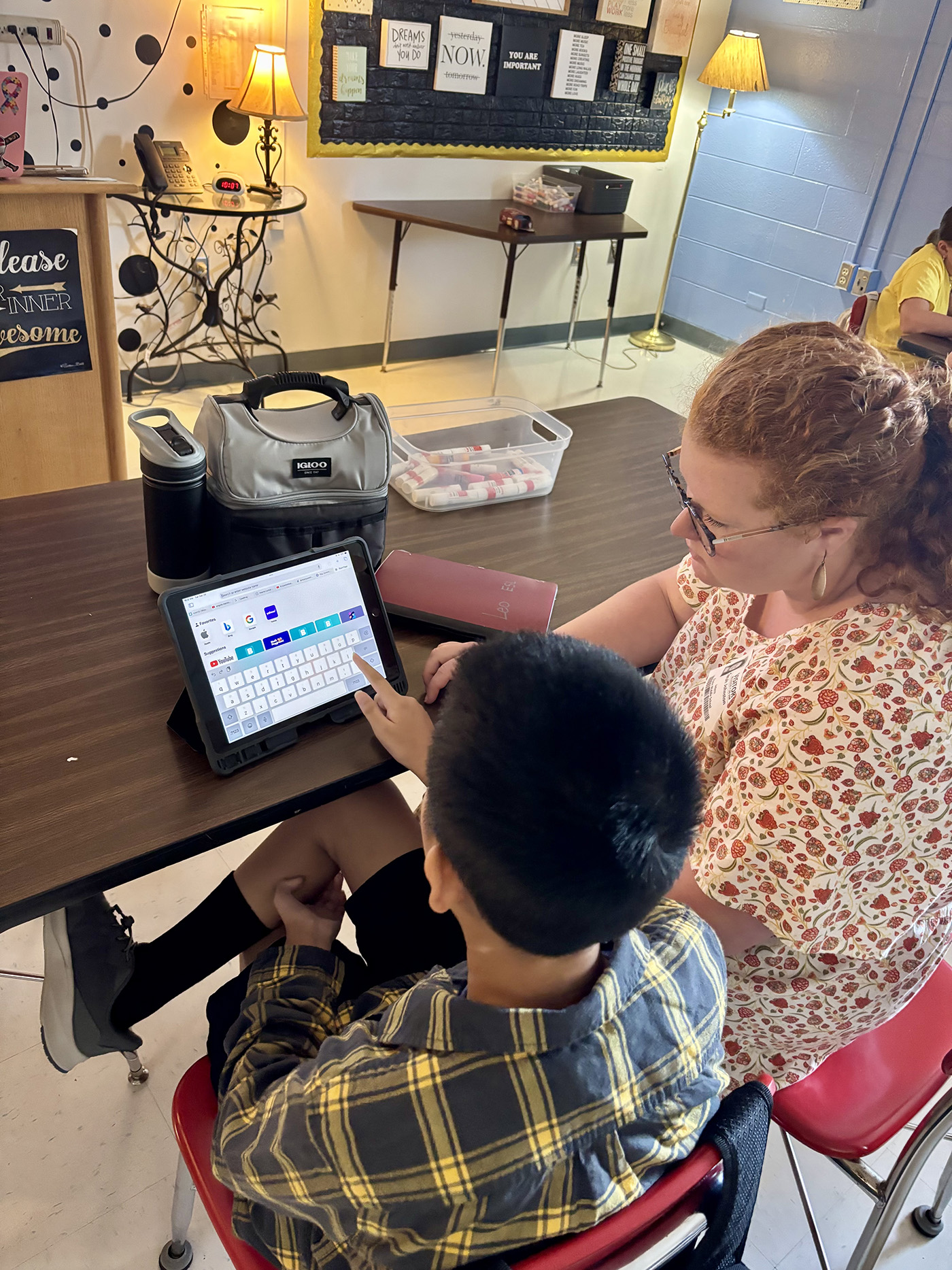 Catawba’s Middle Grades Education program prepares students for North Carolina initial licensure to teach students 6th through 9th grade. Majors will select from four concentration areas (English Language Arts, Social Studies, Mathematics, or Science) and are encouraged to select dual concentrations in either the humanities or STEM areas.
Catawba’s Middle Grades Education program prepares students for North Carolina initial licensure to teach students 6th through 9th grade. Majors will select from four concentration areas (English Language Arts, Social Studies, Mathematics, or Science) and are encouraged to select dual concentrations in either the humanities or STEM areas.
Majors can choose a non-licensure or licensure pathway. Students selecting a licensure pathway will complete requirements in addition to the courses in the major (student teaching semester, licensure exams, and edTPA portfolio) to qualify for NC state licensure.
Catawba's Teacher Education programs are approved by the North Carolina State Board of Education and the Department of Public Instruction for licensure of our graduates. With a rich tradition of developing excellent teachers that dates back to 1925, Catawba College’s Education graduates enjoy great success in securing jobs or admission to graduate programs immediately after graduation.
Program Highlights
-
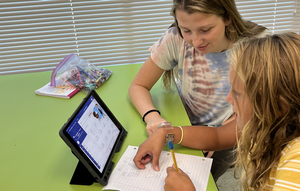
Experiential Learning
Benefit from strong partnerships with local school systems, experiential visits early on, year-long internships your junior year, and a co-teaching student teaching model for optimum support and growth.
-
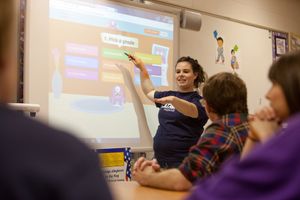
Essential Skill Development
Developing skills that transfer to immediate and future careers provides a competitive edge. You will learn critical thinking, management, public speaking, and technology skills, plus motivational techniques and service orientation.
-
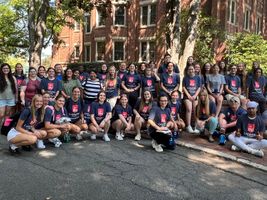
Academy for Teaching
Established in 2007, the Shirley Ritchie Academy for Teaching offers opportunities for personal and professional growth through travel, professional development programs, cohort activities, guest speakers, networking, and field experiences.
School of Education at Catawba College
Catawba College's Teacher Education Department prepares reflective teachers who possess the professional knowledge, skills, and dispositions necessary for effectively teaching students in a diverse and global society. Our Teacher Education program has a rich tradition of turning out excellent teachers dating back to 1925.
Education Pathways
The Department of Teacher Education at Catawba College offers several pathways that allow students greater flexibility in completing education majors and minors while providing different options for future careers as educators.
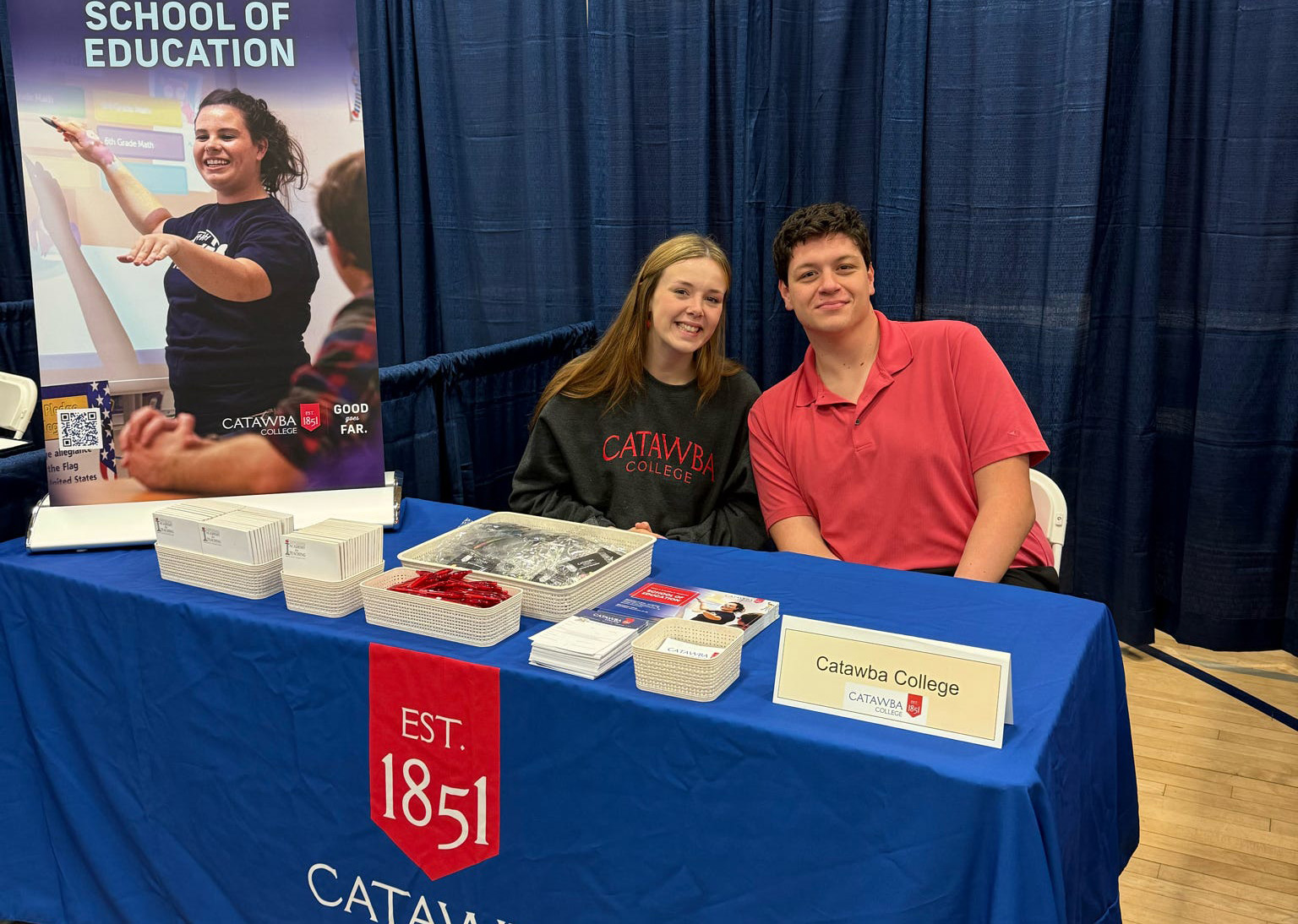
In the traditional pathway (“licensure route”) students are admitted the Teacher Education program, complete student teaching, and earn a recommendation for full licensure. This traditional pathway requires students to complete a series of standardized assessments in order to obtain licensure. Historically, our program alumni have been in incredibly high demand, have entered the teaching profession with all requirements completed for an initial teaching license, and have qualified for licensure in other states.
The non-licensure pathway is for students who want to:
- Work in public or private schools that do not require teachers to have a teaching license, but who still want a solid preparation in developing the skills to teach;
- Get a “head start” on alternative routes to licensure (such as the NC Residency License); or
- Develop knowledge and skills useful in industry (working as Educational trainers) or college/university teaching.
While there is a minimum GPA requirement of 2.50 (and work in the public schools often requires a criminal background check), students in the non-licensure pathway are not required to pass the standardized assessments required of students in the traditional, licensure pathway. The non-licensure pathway allows students to continue in education coursework and earn an education degree or minor without seeking licensure.
Both the licensure and non-licensure pathways are academically rigorous and offer flexibility to allow students to transition between pathways as plans change.

Jana Burkhardt '14 Middle School Education Major; Member of the Women's Golf Team; Resident Assistant; Employed as 6th Grade Science and Math TeacherI majored in Middle School Education with concentrations in Social Studies and Science. I wanted to teach at the middle school level because the students are at the point where they can be still creative and they are beginning to form their own opinions. They are fragile, and I want every person who comes through my classroom door to know that no matter what, they will have someone who is invested in their success.
Program Details
Student Professional Associations
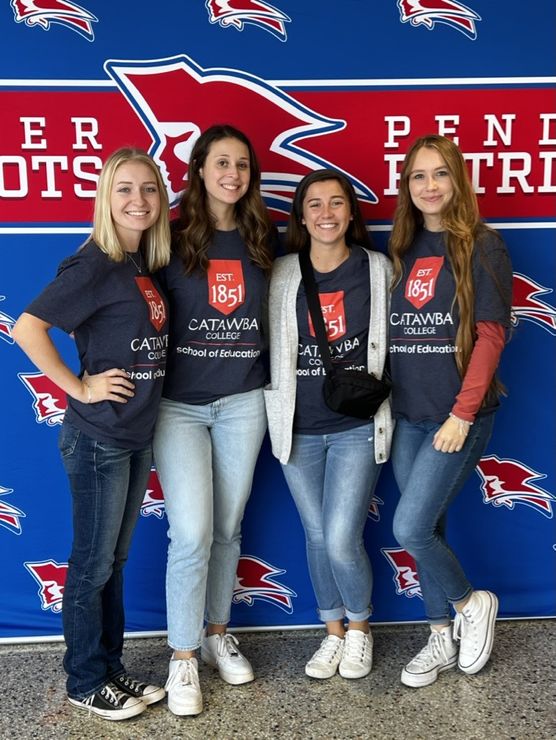
Student Professional Associations
SNCAE (Student North Carolina Association of Educators): Catawba's prospective teachers club, SNCAE, is open to anyone majoring or minoring in education. The regular monthly meetings are devoted to the professional and social enrichment of the members and to the advancement and refinement of the profession. SNCAE sponsors social activities, professional development, and community service activities throughout the year.
Kappa Delta Pi Honor Society: Kappa Delta Pi is an International Honor Society in Education dedicated to recognizing excellence in education. Kappa Delta Pi invites members who exhibit the ideals of scholarship, high personal standards, and promise in teaching and allied professions. The Theta Phi Chapter at Catawba College was installed on February 28, 1958 and reactivated in 1983. KDP accepts members who exhibit commendable personal qualities, worthy educational ideals, and sound scholarship.
Net Price Calculator

Net Price Calculator
Estimate your share of college costs and how much financial aid you may be eligible to receive
Our calculator is designed to give you an early indication of what type of financial aid you may qualify for if you were attending Catawba College as a first-year, transfer, online, or graduate student.
Outcomes
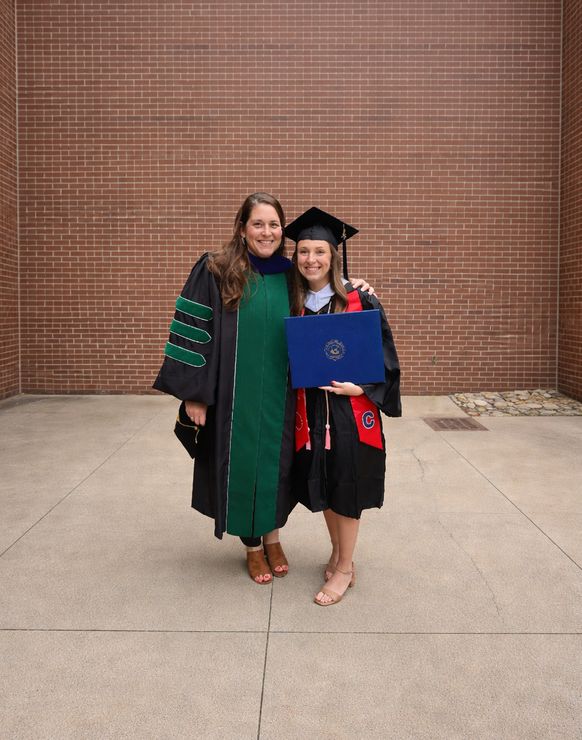
Outcomes
Careers - The most typical job opportunity for Catawba's Middle School Education majors is as a Middle School (6-9) teacher. However, due to the skills gained through the Teacher Education program, graduates may also seek employment as literacy or mathematics tutors, in human resource positions, in customer service and/or sales positions, adult/continuing education services, as program directors at local non-profits, or in social work. Catawba College graduates with a Bachelor of Arts degree in Middle School Education are also employed in these positions:
- School Administrator
- School Counselor
- Librarian
- Information Systems
- Literacy/Reading Specialist
- Audiology/Speech Pathologist
- School Psychologist
- School Social Worker
Graduate Schools - Grad schools enrolling Catawba Middle School Education majors:
- UNC-Greensboro
- The College of William and Mary
- UNC-Charlotte
- UNC-Chapel Hill
- Wake Forest University
- Appalachian State University
